Picking The Best Lawn Grass for Your Property
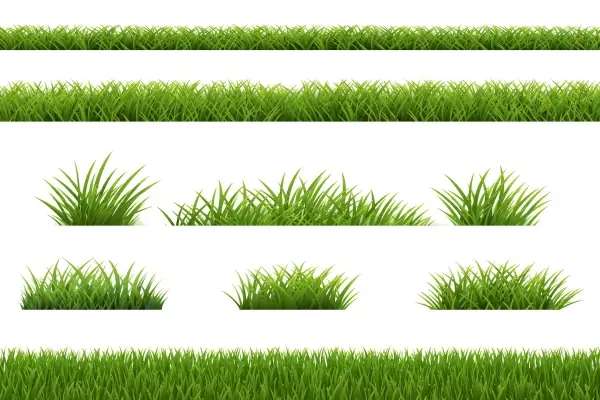
For grass to survive in Canada, it must be cold-hardy and frequently drought-resistant. Most Canadian lawns are a mixture of several different types of grass so that the lawn can tolerate a wide range of temperatures and moisture conditions.
Lawn grasses are typically divided into two main categories: warm-season and cool-season grasses, with some transitional grasses that can live between the extremes of warm and cool climates.
Table of Contents:
Cold Season Grasses for Canadian Lawns
Cool-season grass types tend to only grow in the spring and fall when temperatures remain between 15 and 21 degrees Celsius.
If you live in a province or territory that experiences mostly cold weather, you should plant cool-season grasses like Kentucky bluegrass, red fescue, or ryegrass. These grass plants are dormant in the summer months and require regular irrigation.
If you live in the northern region of North America, you should plant cool-season grasses like Kentucky Bluegrass, Red Fescue, or Ryegrass. This type of grass plant is dormant in the summer months and requires regular irrigation. To request a quote, please click here.
Related Content: How to Prevent Snow Mould on Lawn
Warm Season Grasses for Canadian Lawns
Warm grass types generally grow between April and October and are tolerant to excess heat and lack of a regular water supply. This makes them sturdy and suitable for areas that get heavy foot traffic.
There are only a few warm-season grass types that thrive in Canada. Bermuda grass can help keep your lawn green during the hot summer months while your cool-season grasses lie dormant.
Six Most Common Types of Grasses in Canada
While there are many different grass species, these are the most common grass types in Canada:
Kentucky Bluegrass
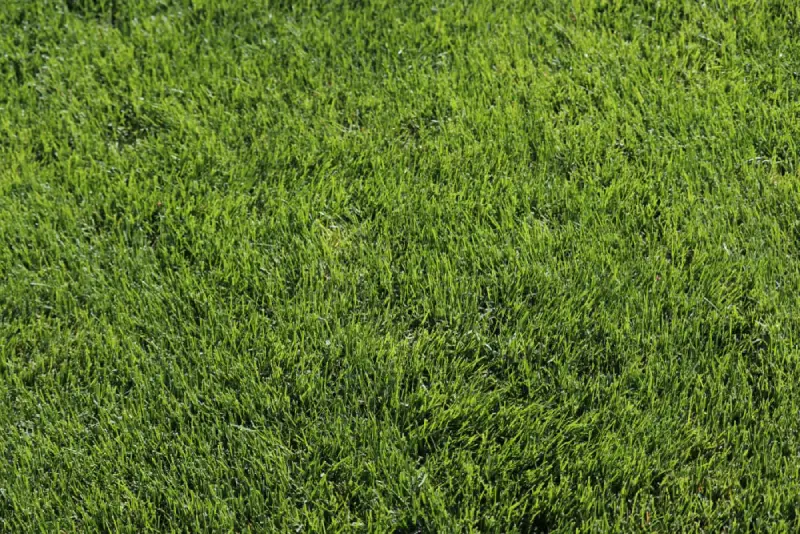
This grass species is one of the primary grasses in many lawn mixtures. Kentucky bluegrass is a cold-season grass with a deep blue-green color. It’s cold-hardy and can survive in harsh climates.
Due to its shallow root system, this bluegrass variety needs frequent watering and well-drained soil. It prefers full sun exposure, but a little shade won’t hurt it.
Kentucky bluegrass should be fertilized 5 to 6 times yearly and flourishes in the fall and spring.
Canadian Bluegrass
Common in Canada and the northern US, this hardy cool-season grass is fine textured with a creeping root system. This low-maintenance grass is often planted in conservation areas and other places that are hard to maintain.
It will grow in rocky or sandy soil and prefers full to partial sunlight.
Ryegrass
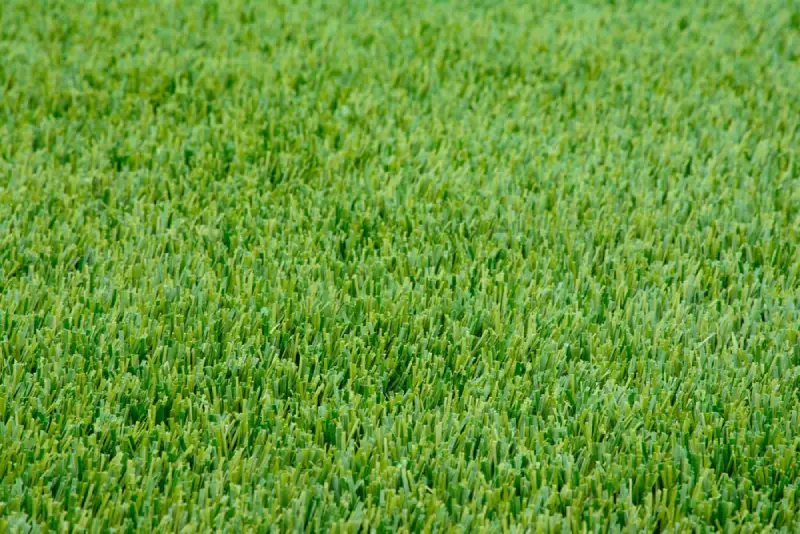
Ryegrass is a cold-season grass that is better suited to cooler climates like Quebec or Newfoundland. It doesn’t need much water and can sustain itself well during the winter or through droughts.
Most commonly, ryegrass can be found on sports fields, playgrounds, and other high-foot traffic areas. This grass type should be fertilized 3 to 5 times a year and watered regularly but can go without water for about two weeks without major impact.
Ryegrass fits within the cool season grasses category but does best in temperate climates with neither winter nor summer extremes. This type of grass plant is often mixed with bluegrass to use in sports fields.
Tall Fescue
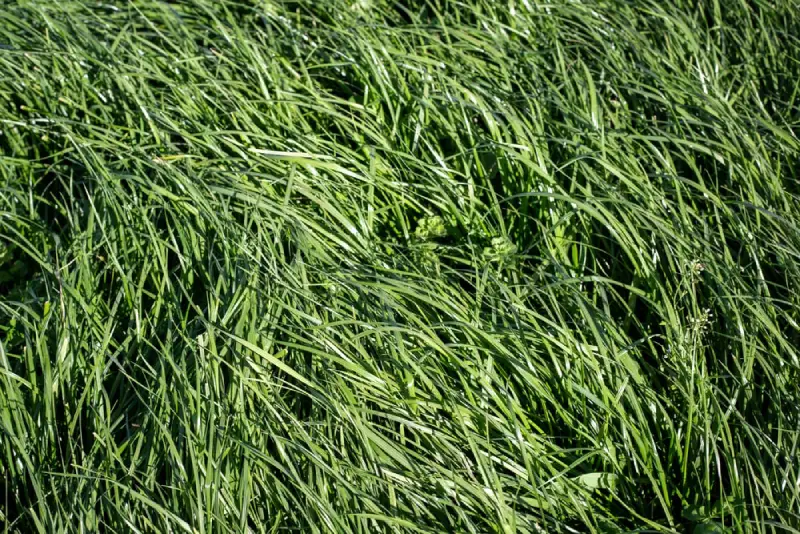
This variety of fescue grass grows well in shaded and sunny areas. Tall fescue is a cold-season grass that is popular due to its low-maintenance treatment.
Its deep root system can tolerate extended periods of drought and heat, and it is one of the most heat-tolerant cool-season grass types.
Tall fescue takes about two weeks to sprout and is slowly established in a lawn. This grass type should only be fertilized 2 to 4 times a year.
Red Fescue
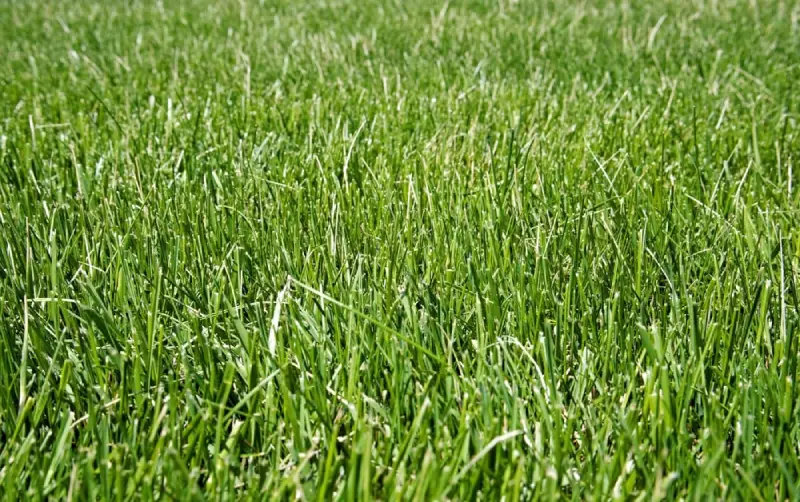
This grass is appropriate for both northern and temperate climates and is often planted in cool, shady mountain or roadside areas where low maintenance is desired. This different type of grass likes the cold and doesn't do as well in the heat. Click here to request a quote.
Bermuda Grass
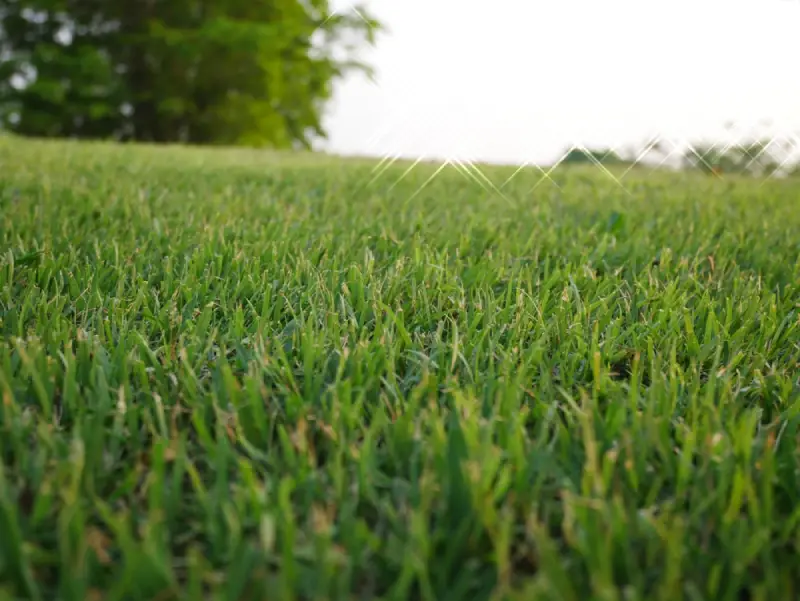
Bermuda grass likes hot weather and needs plenty of water to stay green. It provides a short blade length and requires a lot of sunlight.
Bermuda grass is a warm-season grass that’s nice to mix into your lawn, so it stays green all summer long. Mix it with grass such as ryegrass that will go dormant in the summer, allowing the Bermuda grass to take over. The reverse will happen in the fall.
How to Identify Grass Type
After determining which grass type you think would work best for your lawn, it’s time to look at the standard grass-type features. Color and textures are easy to identify, while other features may require a close look at your grass.
- Grass tip shape – Examine your grass tips to determine if it has a pointed, rounded, or boat-shaped tip.
- Shoot type – How grass leaves arrange themselves in new shoots, called vernation, can be either V-shaped, circular shape, or rolled in on itself.
- Growth pattern – There are two main growth habits: bunching growth and creeping growth. Bunching grass grows in clump-like bunches while others spread through stems that can rise above and underground.
WARM SEASON GRASS FEATURES:
|
Grass Type |
Tip Shape |
Shoot Type |
Growth Pattern |
|
Bermuda grass |
Sharp-pointed |
Folded or rolled |
Spreading – underground stems |
COLD SEASON GRASS FEATURES:
|
Grass Type |
Tip Shape |
Shoot Type |
Growth Pattern |
|
Perennial ryegrass |
Sharp-pointed |
Folded |
Bunch – forming |
|
Tall fescue |
Sharp-pointed |
Rolled |
Bunch – forming |
|
Canadian bluegrass |
Sharp-pointed and rounded-tip |
Folded |
Spreading – underground stems |
|
Kentucky bluegrass |
Boat-shaped |
Folded |
Spreading – underground stems |
Related Content: Is Lawn Fertilizer Safe?
Need Help Planting the Right Grass in Your Yard?
Identifying your grass can seem daunting, but picking a grass type that will thrive in your area is vital. Look at your area’s climate first, the amount of sun your yard gets daily, and the features of your grass to compare different grass species that will thrive in your region. The type of grass that you plant on your property depends on the climate where you live as well as the look and feel you want for your landscape.
If you need more assistance with your lawn care and landscaping, The Grounds Guys® are ready to help! We can advise you on the best grass for a low-maintenance and beautiful lawn. Request a free quote online today.
 Click to call
Click to call


